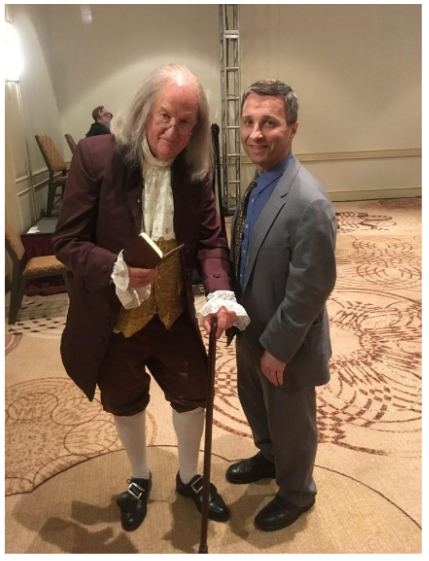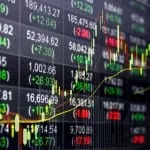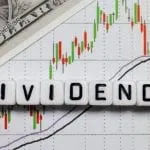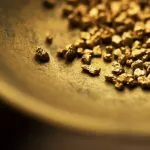Five Dividend-paying Beverage Investments to Purchase
By: Paul Dykewicz,

Five dividend-paying beverage investments to purchase highlight an industry-centric exchange-traded fund, a London-based, multinational provider of premium alcohol and three U.S. soft drink companies.
The five dividend-paying beverage investments are in the top-rated consumer staples sub-sector, according to BofA Global Research. Household, beauty and personal care companies followed closely behind, among stocks that consumers tend to reward during all economic conditions.
Britain’s Diageo plc (NYSE: DEO) received an upgraded rating of “outperform,” up from market perform, on Monday, Feb. 6, from Sanford C. Bernstein, a New York-based financial advisory firm. The investment firm projected a potential upside in the stock up close to 30%.

Courtesy of www.StockRover.com. Learn about Stock Rover by clicking here.
Five Dividend-paying Investments to Purchase: PBJ
Investors looking to gain exposure in the beverage industry may want to seriously consider Invesco Dynamic Food & Beverage (PBJ), said Bob Carlson, a pension fund chairman who also heads the Retirement Watch investment newsletter that recommends a variety of strategically selected portfolios. The fund seeks to track the Dynamic Food & Beverage Intellidex Index. The index typically has 30 stocks of companies that are principally engaged in the manufacture, distribution, or sale of products in the food and beverage, agricultural and new food technologies.
The index has frequent changes and selects securities using price momentum, earnings momentum, quality, management action and value. Turnover in the fund is about 98%.

Bob Carlson, pension chairman and Retirement Watch, talks to Paul Dykewicz.
Top holdings in the fund recently were Hershey (NYSE: HSY), Kraft Heinz (NASDAQ: KHC), PepsiCo ((NASDAQ: PEP), General Mills (NYSE: GIS) and Keurig Dr. Pepper (NASDAQ: KDP). About 45% of the fund is in its 10 largest positions.
The fund’s dividend yield is hovering around 1.8%, while its share price has jumped 2.61% in the last 12 months. PBJ is down 1.80% for the past three months but up 2.61% over the last four weeks.

Chart courtesy of www.stockcharts.com
Five Dividend-paying Investments to Purchase: Diageo Inc.
Diageo’s brands of alcohol feature Johnnie Walker, Crown Royal, JeB, Buchanan’s, Windsor and Bushmills whiskies, Smirnoff, Ciroc and Ketel One vodkas, Captain Morgan, Baileys, Don Julio, Tanqueray and Guinness. Its multinational reach encompasses the world’s biggest markets, including North America; Europe and Turkey; Africa; Latin America and the Caribbean; and the Asia-Pacific.
Jim Woods, who concurrently leads the Intelligence Report investment newsletter and the Bullseye Stock Trader advisory service, told me he likes the company’s prospects, especially after a recent pullback in its share price that reduced its valuation. Woods, whose trading service features both stocks and options, is an aficionado of fine dining and premium drinks. He has yet to recommend the stock but indicated to me he is keeping an eye on it.

Chart courtesy of www.stockcharts.com
Woods Picks His Favorite of Five Dividend-paying Investments to Purchase
On Jan. 26, Diageo reported an 18.4% rise in net sales during the second half of 2022, compared to the same time the year before, primarily reflecting strong organic net sales growth as well as favorable impacts from foreign exchange stemming from a rising U.S. dollar. The company’s operating profit grew 15.2% to $3.86 billion, or £3.2 billion.
However, Diageo reported a drop in operating margin of 92 basis points, or .92%, for the last six months of 2022, compared to the same period the previous year, with organic margin expansion more than offset by one-time operating items and foreign exchange. Diageo also reported that its organic operating profit grew 9.7% in second-half 2022, compared to the same six months of 2021, and its organic operating margin expanded by 9 basis points, or .09%, driven by leverage on operating costs due to disciplined cost controls, despite inflation.
Price increases and supply productivity savings more than offset the impact of absolute cost inflation on gross margin, Diageo reported. Growth flowed across most categories, primarily scotch, tequila and beer, the company announced. Premium-plus brands contributed 57% of Diageo’s reported net sales and drove 65% organic net sales growth.

Paul Dykewicz meets with Jim Woods, head of Bullseye Stock Trader.
Five Dividend-paying Investments to Purchase: Coca-Cola
Consumer staples food and beverage companies have shown “surprisingly inelastic” demand for their products, according to BofA. The investment firm foresees upside for gross margins, along with upgraded earnings revisions, as input inflation plateaus and the U.S. dollar weakens.
Unlike last quarter, BofA broadly predicts earnings estimates for fiscal year 2023 will be in-line or advance due to a brightening outlook.
Atlanta-based Coca-Cola is recommended both by BofA and Mark Skousen, PhD, who leads the Forecasts & Strategies investment newsletter. Coca-Cola is among the Flying Five stocks that Skousen recommends by choosing five Dow Jones Industrial Average positions that have the lowest price from a list of the 10 highest-yielding companies in the index. His Flying Five recommendations have beaten the market most of the years he has used the strategy.

Mark Skousen, a scion of Ben Franklin and head of Fast Money Alert, meets Paul Dykewicz.
Coca-Cola’s total returns have reached 47.2% since Skousen recommended it on July 31, 2017.

Chart courtesy of www.stockcharts.com
Five Dividend-paying Investments to Purchase: Coca-Cola’s Organic Growth Impresses BofA
BofA projects “solid organic sales growth” from Coca-Cola, aided by price hikes and strong demand. The investment firm set a $74 price objective on the stock, giving it a premium to non-alcoholic-beverage peers.
“In our view, a premium multiple is warranted by balanced and resilient organic sales growth,” BofA wrote in a research note.
Outperformance could occur with strong growth in developed and emerging markets, a weakening U.S. dollar compared to other currencies and improved free cash flow conversion, BofA opined. Risks to meeting that price target include volatility in developed and emerging markets, earnings per share (EPS) headwinds if the U.S. dollar strengthens and consumer concerns about sugar and calories, the investment firm wrote.
PepsiCo Pops Up Among Five Dividend-paying Investments to Purchase
Harrison, New York-based PepsiCo (NASDAQ: PEP) is another major beverage stock. The company also owns the popular Frito-Lay brand of snack foods, as well as Quaker Oats. BoA put a buy recommendation on PepsiCo, along with a $205 price target.
“We expect PEP is set up for another quarter of strong organic sales growth, modeling 4Q22 organic sales growth of +8%,” BofA wrote.
PepsiCo received a premium valuation to its non-alcoholic-beverage peers that is “justified” based on the stock’s positioning to deliver against its long-term algorithm and return cash to shareholders via dividends and share repurchases, according to BofA’s research note. Further pluses for PepsiCo include low-to-moderate foreign exchange headwinds, growth opportunities and improving volume/price/mix in soft drinks.
Potential risks to reaching the price target include foreign exchange becoming a drag on results and Frito-Lay North America incurring a decline in volumes due to price hikes. As a fan of Quaker Oats products, I have noticed prices for those goods rising sharply to the point that I recently switched to buying store brands instead.

Chart courtesy of www.stockcharts.com
‘Pepsi Please,’ Connell Says as She Picks One of Five Dividend-paying Investments to Purchase
Michelle Connell, chief executive officer of Dallas-based Portia Capital Management, also recommends Pepsi. Even though inflation has caused many consumers to trade down with their consumer staple purchases and buy cheaper products, Pepsi has not felt this pressure, Connell commented.
Price hikes to consumers drove Pepsi’s revenue growth, not an increase in sales volume, Connell continued. The company’s chief executive officer said there is no near-term intention of further price increases, but neither will recent price hikes be cut in the future.
As Pepsi has passed along price increases caused by inflation, its sales have not diminished. Pepsi has raised prices, since consumers largely are shunning generic beverages, she added.
Pepsi Propels Dividend Payout 10%
In addition, Pepsi announced a 10% boost in its dividend payout when it released its fourth-quarter financial results on Feb. 9. The quarterly dividend rose to $1.265, marking the 51st year in a row that Pepsi has raised its dividends.
Pepsi continued its streak of consistently beating Wall Street expectations with its latest financial results. Organic revenue grew 14% in North America and 16% in international markets, Connell said.
All segments of Pepsi’s businesses continued to experience strong demand for its products, but the Gatorade, Pepsi and Mountain Dew beverage brands showed high demand.
While Pepsi had a good performance in 2022, the stock is off 4.36% year to date. Wall Street analysts estimate that the stock has upside of 10-15% over the next 12 months, Connell told me.
Pepsi can no longer be considered a pure beverage play, Connell said. Convenience foods represent 55% of the company’s sales, while beverages account for the remaining 45%.
“So, every time you walk into a convenience store and grab a package of Lays, Cheetos or Doritos, you are purchasing a Pepsi product,” Connell told me.

Michelle Connell leads Dallas-based Portia Capital Management.
“The company has also been able to increase its beverage market share, especially in the water and athletic beverage categories,” Connell continued.
One area of potential weakness is negative currency effects from a strong U.S. dollar, Connell counseled.
International markets have become increasingly significant for Pepsi’s future, Connell said. Currently, 40% of the company’s sales and one-third of its operating income originate from outside the United States.
“Emerging markets have younger consumers that are just turning the corner from poverty to middle class status,” Connell said. “Disposable income allows these individuals to purchase more foods and beverages more in line with those of their developed market peers.”
In addition, economic forecasts indicate emerging market countries may be the only nations to report positive gross domestic product (GDP) this year. They include China, India and several others in Asia, she added.
Five Dividend-paying Investments to Purchase: Keurig Dr Pepper
Keurig Dr Pepper (NASDAQ: KDP), of Burlington, Massachusetts, is another BofA recommendation. The investment firm placed a $45 price target on the stock. The valuation takes into account KDP’s “attractive portfolio” of products that can grow sales and earnings, particularly with the addition of the C4 energy drink brand, BofA wrote.
Potential to outperform the price target could come from additional synergies, reduced volatility in the coffee business, increased adoption of Keurig brewers and pods, as well as attractive mergers and acquisitions (M&A) candidates.
Several risks could create headwinds to attain the price objective, according to BofA. They include any industry shifts away from single serve coffee, which could lead to slower than anticipated de-leveraging, along with weak consumer spending around the holiday season that could negatively impact sales of the Keurig brewers.

Chart courtesy of www.stockcharts.com
Russia’s Invasion of Ukraine Intensifies
The five dividend-paying beverage investments stocks to purchase are largely protected from the ferocious fighting taking place in Bakhmut, Ukraine, where Russian forces are seeking to seize control of a key highway and capture that important transportation route. Russian airborne units have joined Wagner mercenary fighters in the battle for the city.
Russia’s troops are “leveling Bakhmut to the ground, killing everyone they can reach,” Pavlo Kyrylenko, a Ukrainian prosecutor and politician who also is the current Governor of Donetsk Oblast, wrote on Telegram. Russia claimed on Tuesday, Feb. 1 to have captured a village just to north of Bakhmut as it tries to surround the city and seize control.
The U.S. State Department accused Russia of violating a key nuclear arms agreement by refusing to allow inspections of its nuclear facilities. The only agreement left to regulate the nuclear arsenals of the United States and Russia is the New START treaty, but inspections have been on hold since 2020 due to the COVID-19 pandemic.
Russia is sustaining its onslaught of increased strikes that began last October, targeting Ukraine’s energy and civilian infrastructure. Ukraine is seeking and receiving additional tanks and fighter jets from its allies to fend off Russia’s unrelenting onslaught.
President Biden, in his State of the Union to a Joint Session of the U.S. Congress on Tuesday night, Feb. 7, said Russia’s President Vladimir Putin ordered a “murderous assault” against Ukraine, evoking images of the “death and destruction” Europe suffered in World War II. During the speech, President Biden recognized the presence of Ukraine’s Ambassador to the United States Oksana Markarova.
“She represents not just her nation, but the courage of her people,” Biden said. “Ambassador, America is united in our support for your country. We will stand with you as long as it takes,”
President Putin launched what he called a “special military operation” in eastern Ukraine on February 24, 2022, by attacking his neighboring nation in violation of international law.
China’s officials claimed its balloon that flew above sensitive national defense sites in the United States was civilian and strayed off course before America’s President Joe Biden ordered it shot down by a Navy pilot over U.S. waters off the coast of South Carolina. However, U.S. officials refuted those claims.
“I can assure this was not for civilian purposes,” said Air Force Brig. Gen. Pat Ryder. “We are 100 percent clear on that.”
President Biden also ordered the successful shoot down of an unidentified, unmanned object over frozen waters near the coast of Alaska on Friday, Feb.10. It was at an altitude of 40,000, raising the risk it may interfere with commercial air traffic, Biden administration officials said.
Could Alleged Aerial Spying by China Lead to Economic Sanctions by the United States and Other Nations?
A relaxing of COVID-related lockdowns in China has begun showing signs of spurring its economy and boosting demand for construction-related commodities such as copper and oil. However, China is putting itself in the crosshairs of the United States and other nations for violating their air space.
China’s leaders denied its multiple balloons flying over other countries are part of its national surveillance program, but U.S. leaders countered that its international rival’s balloon-spying program is intended to target not only the United States, but 40 countries across different continents. U.S. officials reportedly are considering punitive actions against China aimed at curbing the surveillance activities of the world’s most populous country.

The U.S. Navy shot down China’s alleged spy balloon and recovered it in U.S. territory.
Image courtesy of DOD Imagery and Petty Officer 1st Class Tyler Thompson.
China’s Officials Admit to 82,000 COVID Deaths in Past Two Months
China continues to be criticized for its lack of transparency in reporting the COVID-19 cases and deaths in its country. Its officials tweaked the country’s death toll to include those caused by COVID-related illnesses, bringing the total to 82,000 deaths in the last two months. However, only people who died in hospitals are counted, not those who perished at home, news reports indicated.
President Biden recently announced plans to end the current U.S. public health emergency declaration due to COVID-19 this May. However, worldwide COVID-19 deaths rose to 6,852,940 people, with total cases of 672,684,379, Johns Hopkins reported on Feb. 10. COVID-19 cases in the United States totaled 102,842,854, while deaths reached 1,114,341 as of Feb. 10, according to Johns Hopkins University. Until recent reports that China had more than 248 million cases of COVID-19, America had ranked as the nation with the most coronavirus cases and deaths.
The U.S. Centers for Disease Control and Prevention reported that 269,208,743 people, or 81.1% of the U.S. population, have received at least one dose of a COVID-19 vaccine, as of Feb. 8. People who have completed the primary COVID-19 doses totaled 229,820,324 of the U.S. population, or 69.2%, according to the CDC. The United States has given a bivalent COVID-19 booster to 49,078,211 people who are age 18 and up, equaling 19.2% as of Feb. 8, 19% on Feb. 1, 18.8% as of Jan. 26, 18.5% on Jan. 18, 18.2% the week before and 11, 17.7% the previous week.
The five dividend-paying beverage investments to purchase offer refreshing investment opportunities when the market overall has been struggling in the past year to find strength.











